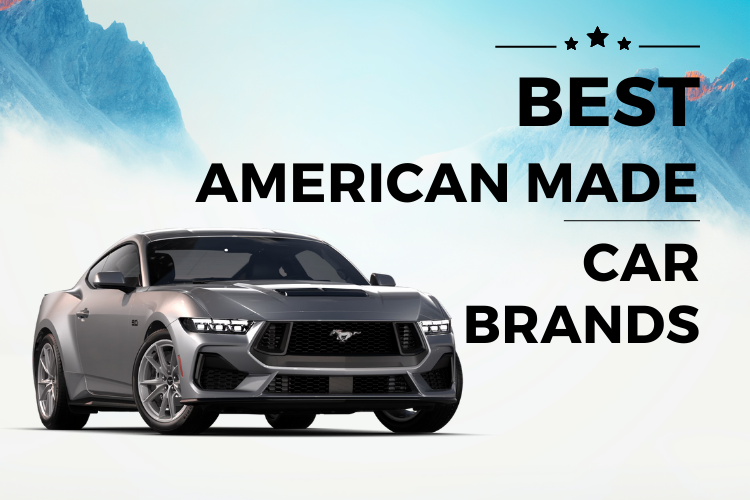Car prices are climbing, including American-made vehicles. The United States recently announced plans for 25% tariffs on imported cars and parts. Add to that the pressure of supply chain disruptions, increased interest rates, and the potential for tariffs on imported vehicles and parts, it may be best looking into the used car market for your next vehicle.
Although we don’t know the exact impacts of the tariffs, car prices are climbing fast. With domestic policies poised to impact auto costs, buying American-made isn’t just patriotic—it might be the smartest financial decision of 2025.
Additionally, choosing an American-made vehicle can help reduce the impact of import taxes, avoid long shipping delays, and support local manufacturing jobs nationwide. U.S. automakers like Tesla, Ford, and Chevrolet are also leading the charge in hybrid and EV innovation, safety, and long-term value.
In this guide, we’ll look closer at the top American-made car brands, explore their most popular models, highlight key features, and help you determine which brand best fits your needs. From iconic names like Ford and Jeep to newcomers like Rivian, we’ll show you why buying American might be your most brilliant move yet.
Key Takeaways
- American-made cars support the U.S. economy and reduce reliance on imports.
- Leading U.S. car brands include Tesla, Ford, Chevrolet, and Jeep.
- Choosing American-made may lower costs impacted by international tariffs.
- Many domestic vehicles offer substantial resale value and advanced safety features.
In This Guide:
- Why Choose an American Car?
- American Car Brands
- How to Choose an American Car Brand
- USA Car Brand FAQs
Why Choose an American Car?
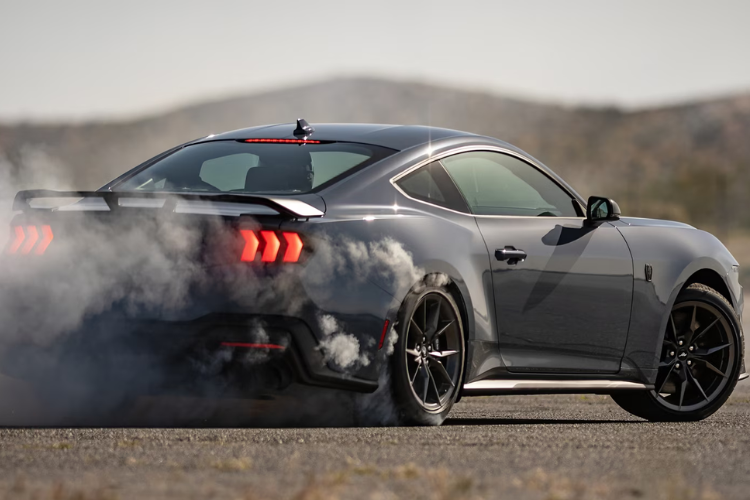
Buying American-made cars means supporting local jobs, innovation, and economic resilience. Vehicles produced in the U.S. often use more domestic parts, reducing the impact of global supply chain disruptions and potentially additional tariffs on those parts. Additionally, American automakers are pushing boundaries in electric vehicle (EV) tech, fuel efficiency, and safety standards.
Whether you’re looking for a reliable commuter, a family-friendly SUV, a hardworking pickup, or a performance EV, the American automotive industry offers something for every lifestyle and budget in 2025. Plus, with car prices rising, buying local can sometimes mean better deals, fewer import taxes, and faster delivery.
American Car Brands
Here’s a closer look at the top American-made car brands in 2025 including their most popular models, pros and cons, and what makes each manufacturer stand out.
1. Tesla
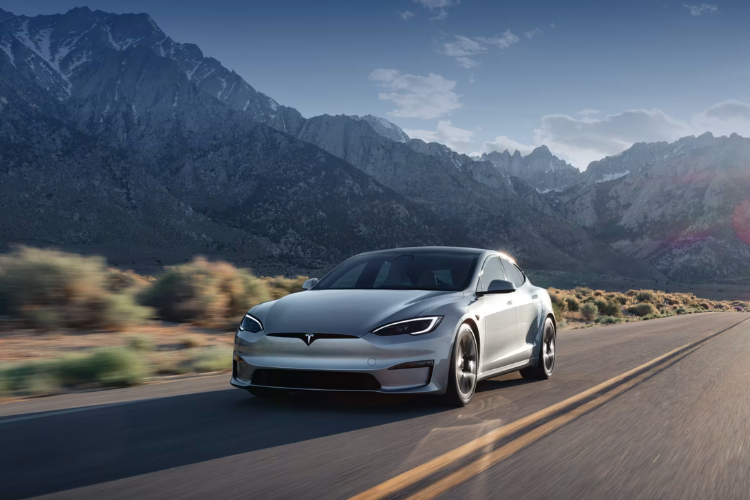
Description:
Based in Austin, Texas, Tesla continues to lead the EV market with sleek design, groundbreaking tech, and a vision for a fully electric future. The brand has redefined performance and sustainability, with every model offering a class-leading mileage range and autonomous features. Additionally, Tesla offers the ability to buy direct from the manufacturer.
Key Features:
- Full self-driving software (beta)
- Over-the-air software updates
- Electric range exceeding 300–400 miles
- Large infotainment screens with advanced UI
Pros:
- High performance with instant torque
- Zero emissions, making it environmentally friendly
- Regular feature updates without dealership visits
Cons:
- Pricey upgrades and premium trims
- Customer service and repair wait times can vary
- Limited physical service locations in some regions
Average Cost: $40,000–$100,000
Additional Info: Tesla ranked #1 in the 2023 Cars.com American-Made Index.
2. Ford
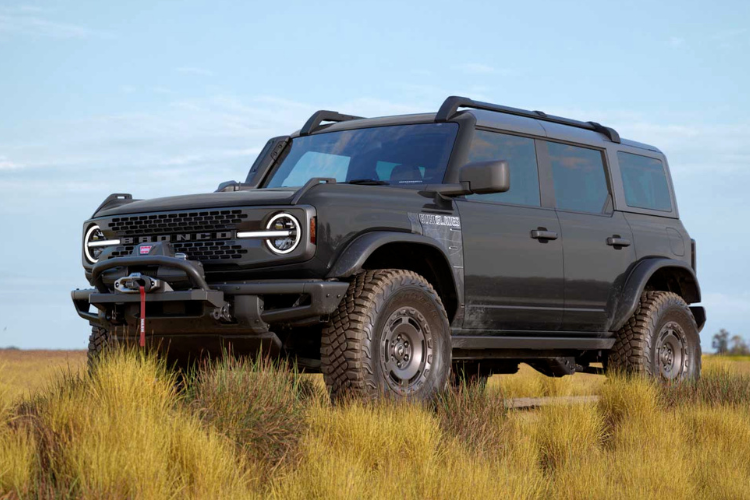
Description:
A historic powerhouse, Ford blends American tradition with cutting-edge innovation. From best-selling trucks to efficient hybrids and exciting EVs like the Mustang Mach-E, Ford continues to evolve with the times.
Key Features:
- EcoBoost turbocharged engines
- SYNC infotainment system with voice controls
- Expansive vehicle lineup, including hybrids and EVs
- Advanced safety features with Ford Co-Pilot360
Pros:
- Great overall value and reliability
- Top-rated trucks and accessible repair services
- Expansive dealer network across the U.S.
Cons:
- Some models lag in fuel efficiency
- Base trims can lack features
- Styling on some models can feel outdated
Average Cost: $28,000–$75,000
3. Chevrolet

Description:
Chevy is synonymous with reliability and everyday utility. It delivers a broad range of options, from budget-friendly sedans to full-size SUVs and electric vehicles, catering to families, commuters, and workers alike.
Key Features:
- Chevy Safety Assist across most new models
- User-friendly infotainment with Apple CarPlay & Android Auto
- EV options like the Bolt EV and EUV
- Wide network of service centers
Pros:
- Substantial resale value across SUVs and trucks
- Broad selection from compact to heavy-duty
- Affordable maintenance and repair
Cons:
- Some interiors feel less refined
- Lower innovation pace than premium brands
- EV models may have a limited range compared to competitors
Average Cost: $25,000–$70,000
4. Jeep
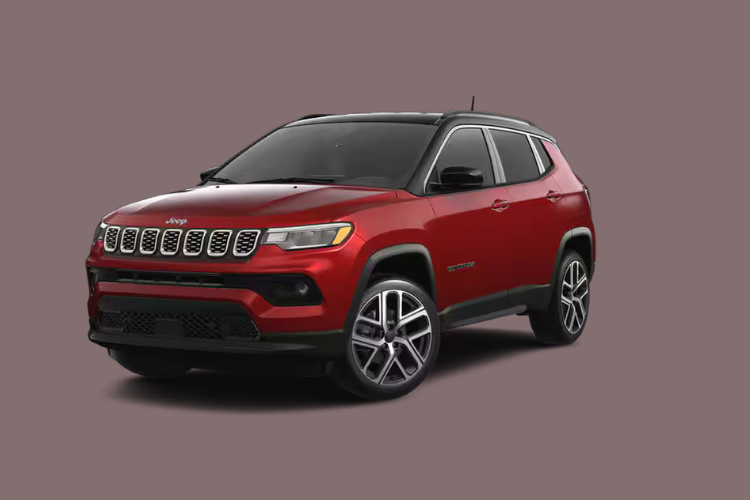
Description:
Jeep is the go-to brand for adventure seekers and off-road lovers. Its iconic styling and all-terrain capabilities make it one of the most recognizable American brands in the world.
Key Features:
- 4×4 drivetrains with advanced traction management
- Trail Rated® performance certification
- Removable roofs/doors on models like the Jeep Wrangler
- Uconnect infotainment with off-road features
Pros:
- Perfect for outdoor adventures and rugged terrains
- Unique character and customizability
- Versatile lineup with urban and off-road appeal
Cons:
- Lower fuel economy across most models
- Ride comfort may be rougher on off-road models
- Repairs can be expensive over time
Average Cost: $30,000–$60,000
5. Dodge
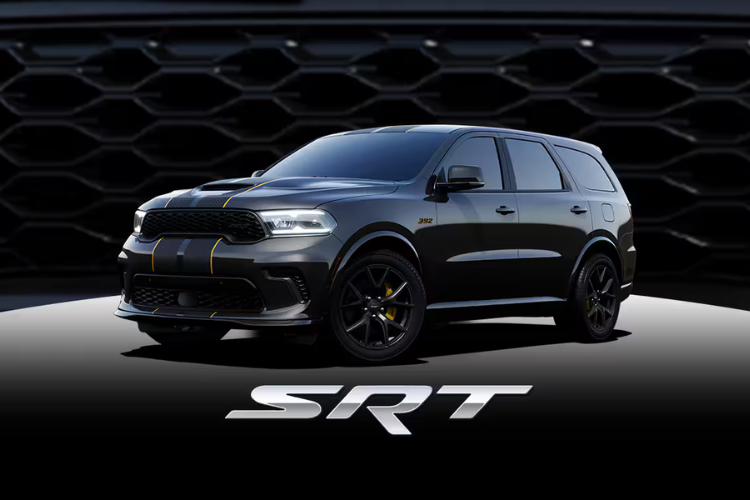
Description:
Dodge continues celebrating American muscle with iconic cars like the Charger and Challenger. These vehicles offer raw power, bold styling, and unmistakable engine roars that appeal to performance enthusiasts.
Key Features:
- High-output V8 HEMI engines
- Performance packages like SRT and Scat Pack
- Available all-wheel drive for select models
- Heritage-inspired design
Pros:
- Powerful acceleration and speed
- Distinctive retro styling and presence
- Great performance value for the price
Cons:
- Lower fuel efficiency and higher emissions
- Not always practical for families or commuters
- Upcoming shift to EVs may affect model availability
Average Cost: $35,000–$85,000
Additional Info: Dodge is doubling down on EV muscle in future models.
6. GMC
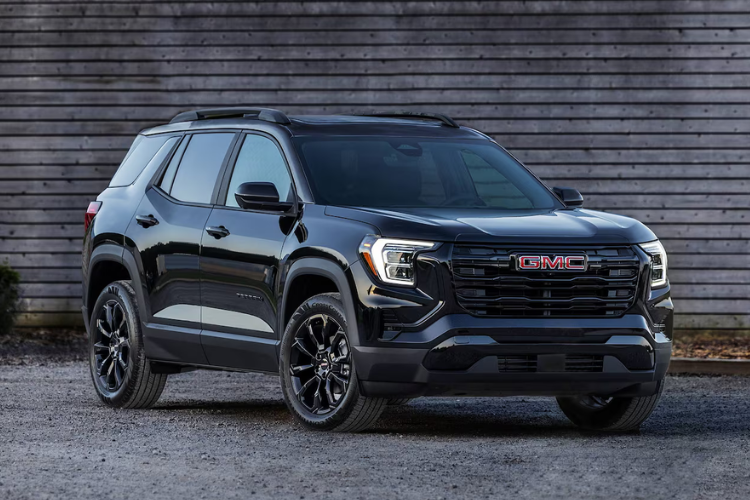
Description:
GMC combines premium touches with truck-level toughness. Whether you’re towing a boat or driving in luxury, GMC trucks and SUVs deliver refinement and ruggedness in equal measure.
Key Features:
- Denali and AT4 luxury and off-road trims
- Advanced trailering tech and safety systems
- Large, upscale interiors with tech features
- Available MultiPro tailgate and air suspension
Pros:
- Strong towing and hauling capabilities
- Luxurious feel in higher trims
- Excellent blend of comfort and durability
Cons:
- More expensive than Chevrolet equivalents
- Fuel economy can be below average
- Optional features can drive prices up quickly
Average Cost: $40,000–$90,000
Additional Info: Great for families who need utility and comfort.
7. Buick
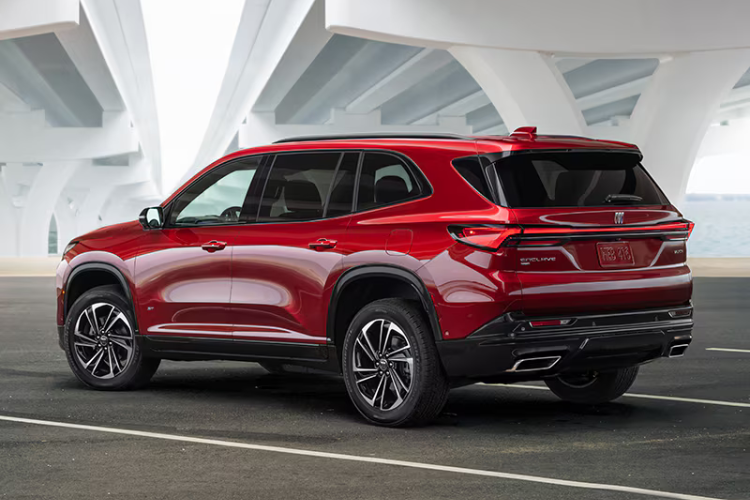
Description:
Once known for sedans, Buick has rebranded as a maker of premium yet affordable SUVs. The lineup offers quiet comfort, smooth handling, and great tech, especially for those seeking understated luxury.
Key Features:
- QuietTuning noise-reduction tech
- Standard driver-assist features like lane-keep assist.
- Elegant interiors with wireless charging and large touchscreens
- Compact and midsize SUV lineup
Pros:
- Affordable luxury without premium pricing
- Smooth and quiet ride quality
- Strong reliability and warranty coverage
Cons:
- Limited lineup after phasing out sedans
- Lacks sporty or performance-focused models
- Not as flashy as luxury competitors
Average Cost: $30,000–$55,000
Additional Info: Buick has shifted focus entirely to SUVs as of 2024.
8. Cadillac
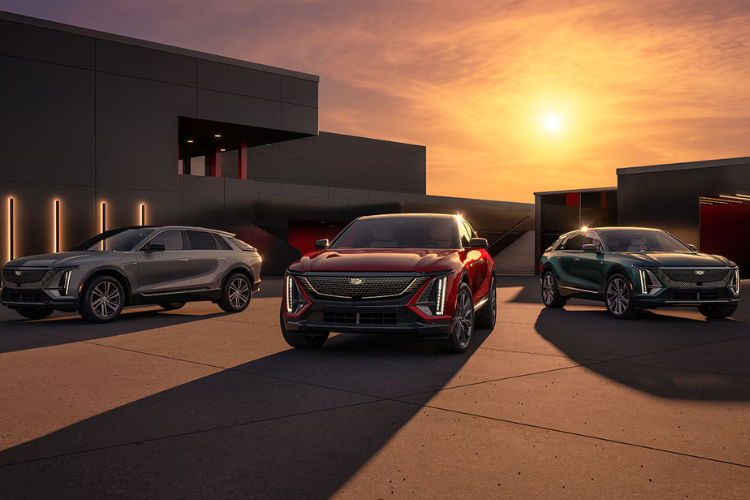
Description:
Cadillac is America’s premier luxury brand, known for bold styling and high-performance trims. With a push into the EV space and innovations like Super Cruise, Cadillac is redefining luxury mobility.
Key Features:
- Super Cruise hands-free driver assistance
- Premium materials and acoustic insulation
- Strong V-series performance models
- Available electric models like the Lyriq
Pros:
- Striking design and luxurious interiors
- Advanced tech offerings
- Comfortable and refined highway driving
Cons:
- Expensive maintenance and ownership costs
- Some models lag behind German rivals in fit/finish
- Smaller lineup compared to previous years
Average Cost: $45,000–$100,000
Additional Info: The Lyriq marks Cadillac’s push into EVs.
9. Lincoln
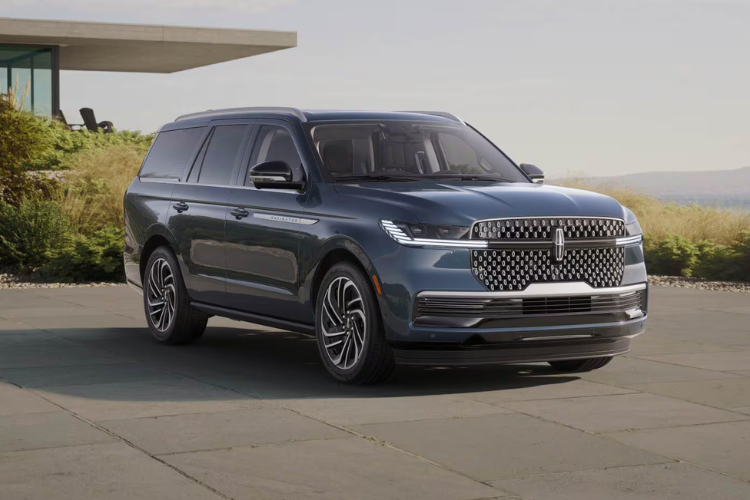
Description:
Lincoln delivers elegant design, quiet luxury, and a focus on the driving experience. From the spacious Aviator to the refined Nautilus, Lincoln offers a sanctuary on wheels.
Key Features:
- Lincoln Co-Pilot360 advanced safety suite
- Unique design cues like piano-key shifters
- Whisper-quiet cabins and smooth ride dynamics
- High customer satisfaction and loyalty
Pros:
- Plush interiors and a peaceful drive
- Excellent customer service experience
- Strong warranty and concierge ownership perks
Cons:
- Fewer models than other luxury brands
- Not as sporty or performance-driven
- Some models share platforms with Ford counterparts
Average Cost: $42,000–$85,000
10. Rivian
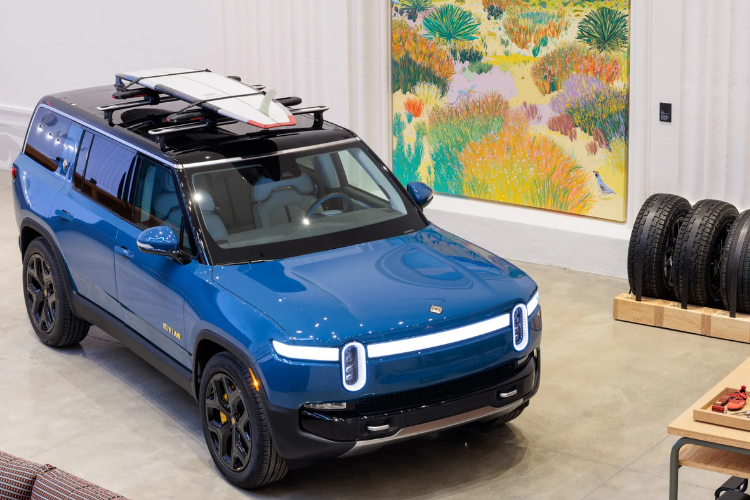
Description:
Rivian is redefining adventure with its all-electric R1T pickup and R1S SUV. Built for the modern explorer, Rivian blends utility, technology, and sustainability into one futuristic package.
Key Features:
- Quad-motor all-wheel-drive for unmatched traction
- Built-in gear tunnel and camp kitchen options
- Adjustable air suspension with off-road modes
- OTA updates and adventure-centric UI
Pros:
- Innovative design and environmental focus
- Incredible off-road capability for an EV
- Rapidly expanding charging and service network
Cons:
- High upfront cost and limited availability
- The service network is still developing
- Not yet proven long-term reliability compared to legacy brands
Average Cost: $70,000–$90,000
Additional Info: Rivian’s R1T is the first electric pickup to reach mass production in the U.S.
How to Choose an American Car Brand
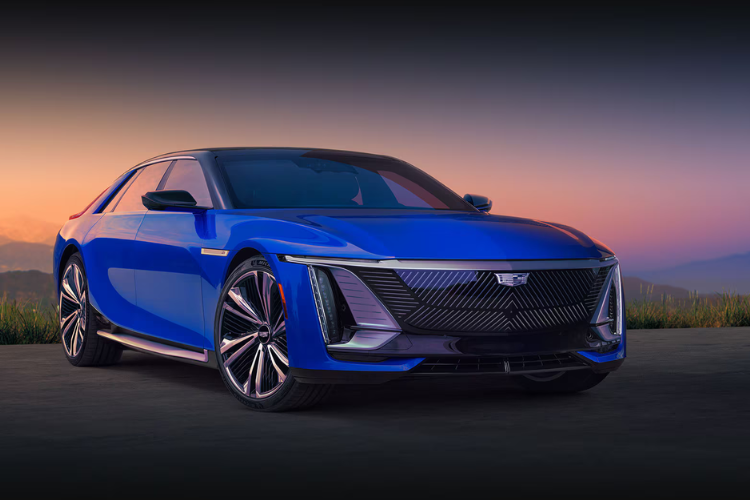
With so many great American-made options, how do you narrow it down? Here’s what to consider:
Purpose
Do you need a commuter car, family SUV, or rugged pickup? Think about your daily driving habits, weekend adventures, or hauling needs—different models suit different lifestyles.
Budget
American-made cars range from affordable sedans to luxury SUVs. Set a clear price range and factor in ownership costs like insurance, fuel, and maintenance.
Fuel Type
Gas, hybrid, or fully electric? Tesla and Rivian lead in EVs, while Ford and Chevy offer hybrids. Also, consider access to charging stations or your preference for traditional engines vs. sustainable alternatives.
Resale Value
Use resources like Kelley Blue Book or our best resale value cars guide. Cars with high resale value typically offer better long-term returns and reliability.
Dealer Network & Service
Established brands like Ford and Chevy have wider service networks. This means easier access to parts, quicker repairs, and more options for routine maintenance.
Feature Priorities
Want top-tier infotainment, advanced safety, or max towing? Different brands shine in specific areas. Make a list of must-have features to guide your decision—whether hands-free driving, cargo space, or premium interiors.
Pro tip: Whether you buy new or used, ensure your vehicle gets home safely. Sherpa Auto Transport offers white-glove car shipping services across the U.S. Their door-to-door service ensures your new ride arrives in pristine condition, no matter where it’s coming from.
USA Car Brand FAQs
What is the USA's top car name?
Ford remains the most recognizable American car brand, mainly thanks to the F-Series truck lineup.
What luxury cars are made in the USA?
Cadillac, Lincoln, and Tesla all manufacture high-end models domestically.
What is the most American car brand?
Tesla leads in American-made content and production, followed closely by Ford and GM brands.

